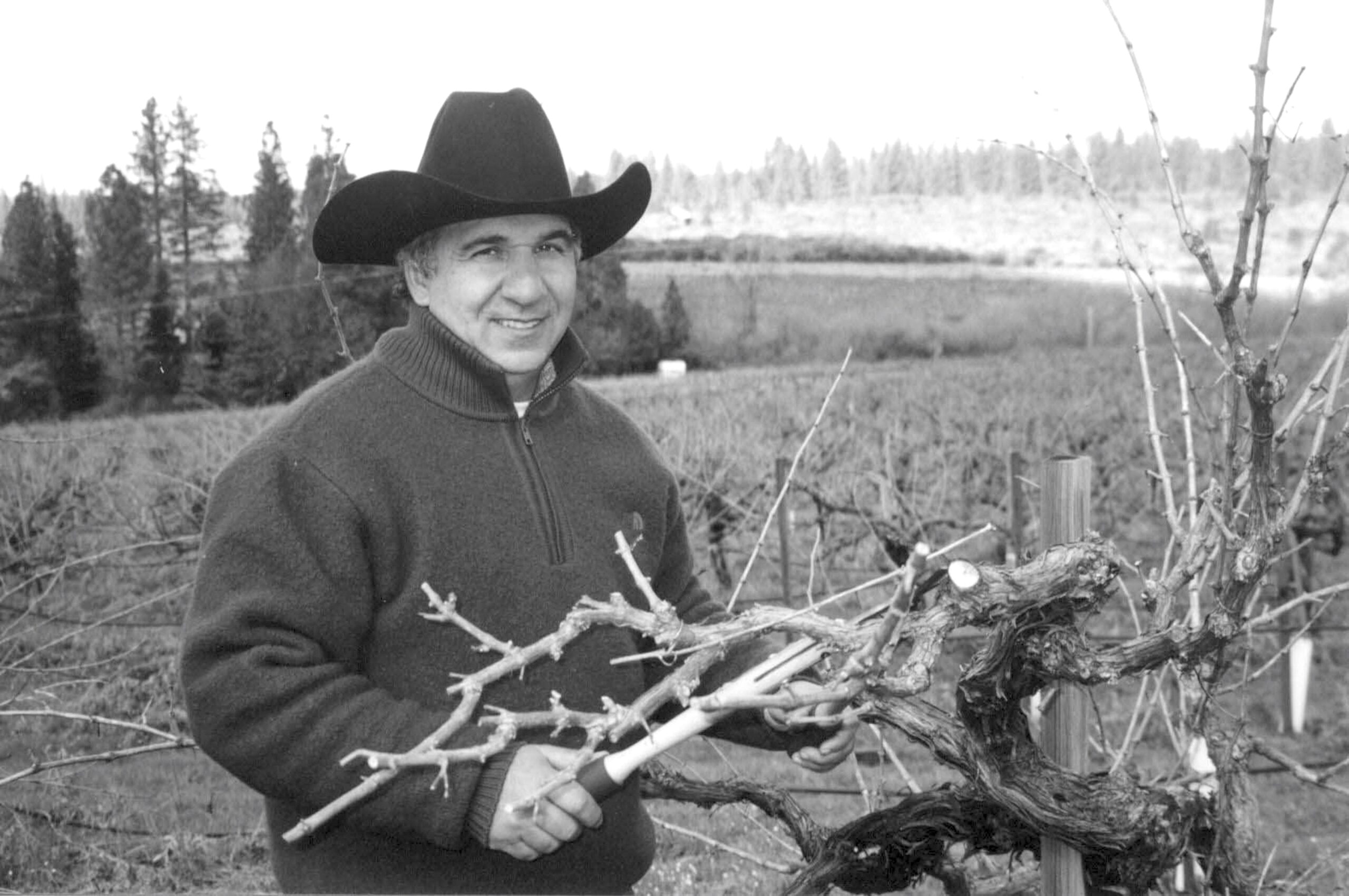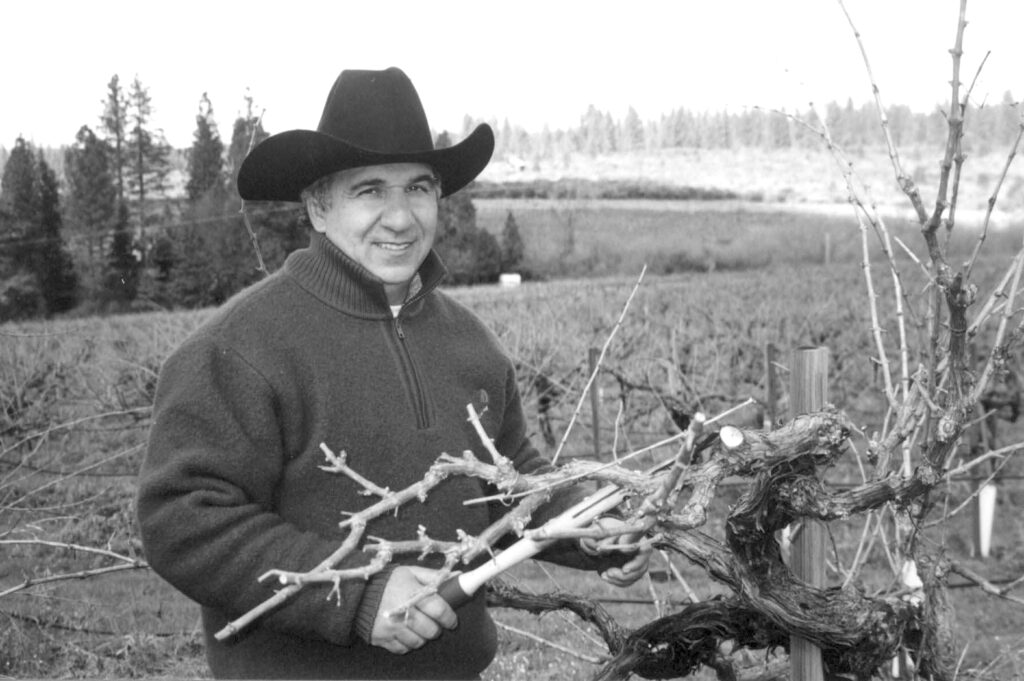
We’re hearing from many of CCOF’s long-term members this year as we celebrate our 50th anniversary. Phil LaRocca is one of our longest-term members; he has also served twice as the CCOF, Inc. Board of Directors chair!
LaRocca has a bevy of stories to share from his history as a seasoned organic farmer and fierce advocate for organic’s integrity and success. He recently shared his story with us—enjoy this glimpse into the early days of organic and CCOF’s evolution.
LaRocca has a deep history of farming without synthetic pesticides and herbicides. His mother’s family moved to the Santa Clara Valley from Sicily, and LaRocca’s grandfather planted a grove of fruit trees. The whole family worked on the farm. After World War II, federal officials tried to give LaRocca’s grandpa excess chemical fertilizer left over from the war, but his grandfather “chased them off.” The farm stayed chemical free in a time when synthetic fertilizers were abundant and widely adopted.
Every weekend growing up, LaRocca would go to the family ranch with his uncles to pick cherries and apricots. As he got older, he started spending whole summers at the farms. “I got the farming bug in me,” LaRocca says. “I loved being out there, being with the trees.” All the while, his uncles talked to him about the importance of not having “a bunch of chemicals on your food.”
LaRocca went to on to graduate from San Jose State University and bounced between organic-focused work for a few years, including teaching an organic farming class, working on a cattle ranch, and getting a master’s degree at California State University, Chico.
Eventually LaRocca ended up leasing an apple orchard in the Chico area. LaRocca’s wife was strict about making sure everything was organic, and they worked together to cultivate the first certified organic apple orchard in California, a few acres of organic concord grapes, and some organic sheep. They’d heard about CCOF and got certified in the 1970s. “Back then, we inspected each other,” LaRocca explains.
It took LaRocca two struggle-filled years to figure out how to successfully do things organically on his farm. He was an outlier at the time, and there wasn’t a lot of support for organic in the agricultural community. “People—even one professor at UC Davis—told me, ‘You dumb hippie, you’ll grow some things organically, but you’ll never grow apples organically!’” Nevertheless, LaRocca persisted, and eventually had a successful organic farm and finished his master’s degree.
“Chico State has changed since then, of course. They run an organic dairy now, have an organic faculty member, and do a lot of other things to support organic. It’s totally different,” he says.
Eventually, LaRocca lost the orchard to a housing development and pivoted to buying pieces of vineyards going obsolete in the 1980s. The transition to growing wine grapes felt natural to him. “I grew up with wine,” he explains. But making organic wine was complicated—and controversial. “I wanted to make an organic wine without sulfur dioxide, and you would have thought the end of the world was coming! I started to get the vibe that no one else was doing it,” LaRocca remembers. “The few people making organic wine stuck together, but the group was split in opinion on adding or removing sulfur dioxide. Meetings would start mellow and get heated quickly.”
LaRocca went looking for answers at California State University, Fresno, where they did their own private ag research. But in the meeting at Fresno State, LaRocca was grilled about how he would grow grapes without an herbicide and faced skepticism about making wine without sulfur dioxide. Rather than being dejected about the outcome of the meeting, LaRocca recalls, “When they tell me something isn’t possible, I always have a little mantra in my head, ‘If they can put a man on the moon, I can grow an apple.’ This ain’t rocket science!”
LaRocca got more and more involved with food production and CCOF. He was elected to the CCOF Board of Directors, and in the mid-1990s became the board chair. “I was there through the whole transition of the National Organic Program coming in and running organic certification,” he recalls. “Because of all the negativity I faced in my early days as a farmer, I wasn’t crazy about getting the government involved—they never helped me! But the one thing I was sure about was getting one standardized rule for organic. There were so many certifiers—all with different standards—and CCOF was the strictest one. If we turned down an applicant, they would just go to another certifier and get certified!”
LaRocca helped write the regulations for organic grape growing and organic winemaking. The sulfur dioxide issue was a heated one. “I came up with the concept of ‘wines made with organic grapes’ as a compromise,” he says. Now, wines can be labeled as “organic wine” if they are made with organic grapes and do not contain sulfites. “Wine made with organic grapes” must contain 100 percent organic grapes but are allowed to include sulfites.
“Then, out of nowhere, we get a ruling that organic farmers can’t sit on a certification body’s board,” LaRocca tells us. “We were doing so well! We came up with the solution of putting a firewall between the board and the certification agency. So now, CCOF, Inc. owns CCOF Certification Services, LLC, and we have the right to appoint its board. We were no longer involved in decision-making for certification, and that’s how it is today.”
LaRocca was also involved in the development of the CCOF Foundation. “My oldest daughter was deeply involved with our local 4H program and realized the kids were using growth hormones in their projects!” LaRocca recalls. “This added to the inspiration for the Foundation’s Future Organic Farmers program to put some money behind organic education for young people. I told them, ‘We’re losing future farmers!’”
And CCOF has truly grown in the time since LaRocca first became a certified member. Even though many of the changes were unexpected, they’ve allowed CCOF to evolve into the powerhouse it is today. “I’m really happy with the structure we have now—the three divisions. I’m proud to be a part of the history and feel that I helped develop where we are today,” says LaRocca.
As for where he sees CCOF going next? “We have such a strong reputation as being the best—being honest and fair. I see the CCOF Foundation growing and see us branching out and running other programs still under the umbrella of strong organic standards. I see us being a more powerful force on the state level,” he says. “We’re gonna see a brighter future.”
